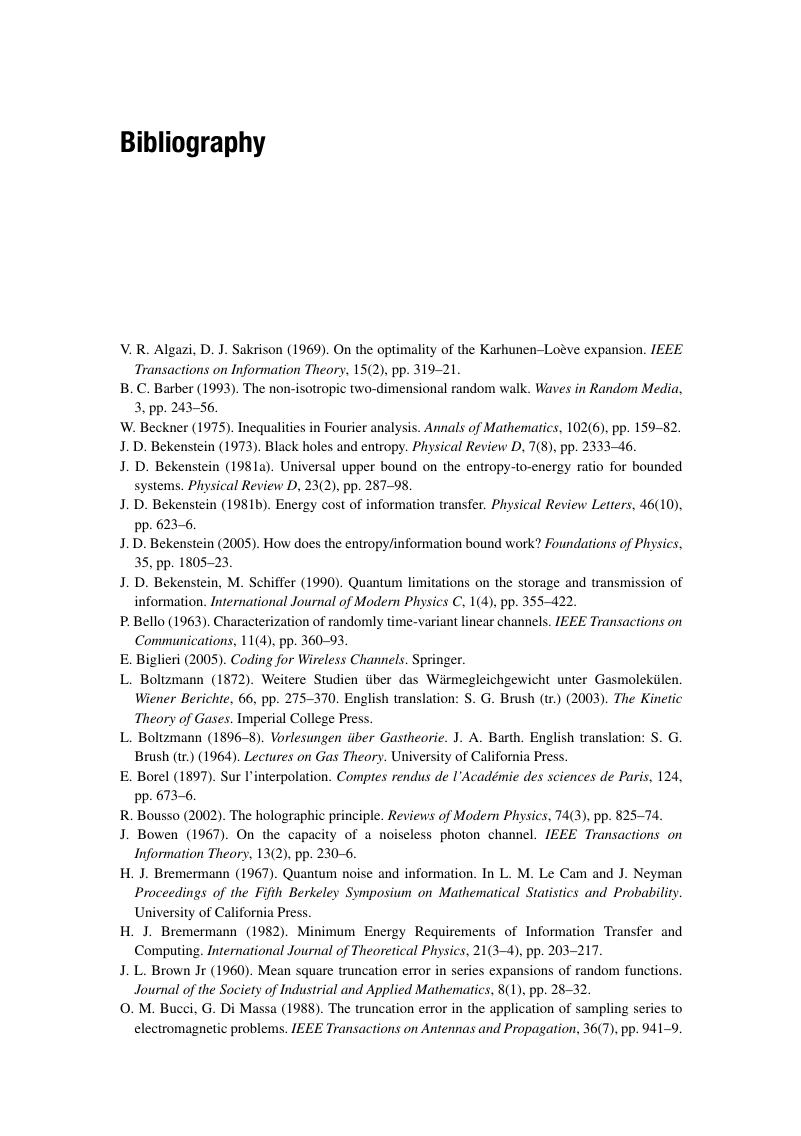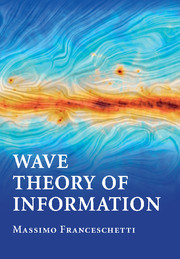Book contents
- Frontmatter
- Miscellaneous Frontmatter
- Dedication
- Contents
- Preface
- Notation
- 1 Introduction
- 2 Signals
- 3 Functional Approximation
- 4 Electromagnetic Propagation
- 5 Deterministic Representations
- 6 Stochastic Representations
- 7 Communication Technologies
- 8 The Space–Wavenumber Domain
- 9 The Time–Frequency Domain
- 10 Multiple Scattering Theory
- 11 Noise Processes
- 12 Information-Theoretic Quantities
- 13 Universal Entropy Bounds
- Appendix A Elements of Functional Analysis
- Appendix B Vector Calculus
- Appendix C Methods for Asymptotic Evaluation of Integrals
- Appendix D Stochastic Integration
- Appendix E Special Functions
- Appendix F Electromagnetic Spectrum
- Bibliography
- Index
- References
Bibliography
Published online by Cambridge University Press: 30 November 2017
- Frontmatter
- Miscellaneous Frontmatter
- Dedication
- Contents
- Preface
- Notation
- 1 Introduction
- 2 Signals
- 3 Functional Approximation
- 4 Electromagnetic Propagation
- 5 Deterministic Representations
- 6 Stochastic Representations
- 7 Communication Technologies
- 8 The Space–Wavenumber Domain
- 9 The Time–Frequency Domain
- 10 Multiple Scattering Theory
- 11 Noise Processes
- 12 Information-Theoretic Quantities
- 13 Universal Entropy Bounds
- Appendix A Elements of Functional Analysis
- Appendix B Vector Calculus
- Appendix C Methods for Asymptotic Evaluation of Integrals
- Appendix D Stochastic Integration
- Appendix E Special Functions
- Appendix F Electromagnetic Spectrum
- Bibliography
- Index
- References
Summary

- Type
- Chapter
- Information
- Wave Theory of Information , pp. 438 - 446Publisher: Cambridge University PressPrint publication year: 2017

